Jerome Yen, director of the Centre for Innovation (CI) at the University of Macau (UM), has been a busy figure on campus since he joined the university last year. You will find him at the One Million Dollar Entrepreneurship Competition, at the Innovation Camp, and in innovation and entrepreneurship courses, always surrounded by a group of students eager to discuss questions. His busy schedule, which mainly revolves around promoting various kinds of entrepreneurial events on campus, is a reflection of student enthusiasm about starting businesses.
A Platform to Encourage Students to Start Their Own Businesses
‘Our students have many innovative ideas, and they are also enthusiastic about starting their own businesses,’ says Prof Yen. ‘But it takes more than passion to start a business. It involves a multitude of complicated issues that need to be learned.’
Established in February 2017, the CI serves as a platform to support faculty and students who want to put their creative ideas to test. Another objective of the institute is to enable university contributions in knowledge and technological innovation by promoting the development and transfer of scientific and technological achievements. ‘After the CI was established, we immediately launched a series of entrepreneurship activities, including lectures, courses, and training camps,’ says Prof Yen. ‘We also provided financial support for faculty and alumni who wanted to start their own businesses. We help students to turn their creative ideas into marketable products or services by providing expert guidance, technology, and funding.’
Expert Guidance to Avoid Detours
Prof Yen has been the director of internet finance at Hong Kong Applied Science and Technology Research Institute, a senior vice president and deputy chief risk officer at a Fortune and Forbes 500 company, and a professor at the University of Hong Kong, the Hong Kong University of Science and Technology, and the Chinese University of Hong Kong. He also has close industry ties. Soon after the CI was founded, he swung into action, inviting entrepreneurs and representatives from local associations, such as the Industry and Commerce Association o Macau, to share their experience and provide information on local incentive policies for people hoping to start their own businesses. ‘We invited Stanley Tang, who made the Forbes 30 Under 30 list in 2015, to share his experience in starting and expanding his business,’ says Prof Yen. ‘Mr. Tang started his business while he was still in college, and his company has won favour with Sequoia Capital, a famous venture capital firm.’ Prof Yen hopes that students can gain inspiration and experience from the series of talks on innovation and entrepreneurship so they can avoid detours when starting their own businesses.
Prof Yen has also invited experts from UM’s various academic units to join the consulting team at the CI to support would-be entrepreneurs in such areas as team management, market expansion, financial management, financing, sustainable operation, legal matters, intellectual property rights, and industry-academia collaboration. ‘We want to make full use of the human resources at the university and open courses to teach the basics so that our faculty members and students not only can acquire the necessary skills, but can also develop an entrepreneurial mindset and an entrepreneurial spirit.’
Entrepreneurship Courses with an Emphasis on Practice
In the first half of the 2017/2018 academic year, UM launched entrepreneurship courses for undergraduates for the first time, hoping to provide an opportunity for entrepreneurially inclined students to gain a deep understanding of the problems that may be encountered in the process of starting a business.
‘These courses place an emphasis on practice, public speaking training, and analytical skills,’ says Prof Yen. ‘After finishing these courses, students will acquire some basic knowledge in law, finance, financial management, and team development. We will select some promising student teams for business incubation and support them in the implementation of their projects.’
The courses have been very well received. So well received, in fact, that UM subsequently decided to extend the scope of the courses to include postgraduates. ‘Postgraduates have done a lot of innovative research. Some of them have already had some experience in turning an idea into a marketable product or service,’ says Prof Yen. With his encouragement, some UM students participated in the Bank of China Trophy One Million Dollar Macao Regional Entrepreneurship Competition last year. A team of four master’s students from different faculties, led by Dr. Wang Chunming, an assistant professor from the Institute of Chinese Medical Sciences, won the championship at the Macao regional competition and an excellence prize at the national final, with their product ‘Golden Wound Dressing’. The team also won the Gold Award at the Third China College Students’ ‘Internet+’ Innovation and Entrepreneurship Competition.
‘The CI provides a platform for students to start their own businesses. Students with innovative ideas can submit a proposal to us and apply to join the CI or participate in entrepreneurship competitions. If they are ranked high in the competition, we will invite them to join the CI for business incubation,’ says Prof Yen. ‘The applications received by the CI so far mainly focus on three areas, namely Chinese medicine and health, medical science and technology, and information and communication technology. Faculty and students with commercially viable proposals can apply for a start-up fund from the University of Macau Development Foundation. Upon approval, we will provide expert guidance to help students turn their ideas into feasible projects.’
Entrepreneurial Opportunities Beyond Macao
The government of the Macao Special Administrative Region has long promoted economic diversification. Prof Yen believes that this, combined with the development of the Guangdong-Hong Kong-Macao Greater Bay Area, will create new opportunities for entrepreneurially-inclined students.
‘The Macao SAR government hopes to drive economic growth with innovative technologies, and this calls for young people with innovative and entrepreneurial thinking,’ says Prof Yen. ‘The Greater Bay Area provides a platform for collaboration among the three regions, which can help students look beyond Macao and explore entrepreneurial opportunities in other places such as Zhuhai, Shenzhen, and Hong Kong. In the future, outstanding UM graduates should be able to start businesses anywhere they want regardless of where they come from.’ In fact, some student entrepreneurial teams led by Prof Yen have done just that – establishing companies in Innovalley HQ, targeting not just Macao but the entire country.
Starting a Business Requires Breakthrough Thinking
Prof Yen often reminds students that starting a business requires breakthrough thinking and a strong commitment to goals. ‘Take the president of OceanAlpha. He loved to play with toy boats when he was a child. Later, he turned his interest into a career,’ says Prof Yen. ‘These entrepreneurs didn’t start a business for its own sake. They were motivated by a strong interest. They share a kind of fervour that other people can’t understand, and this fervour sustains them through difficult times. They are also better at integrating resources. ’
Many prominent universities around the world encourage their students to be innovative leaders. Prof Yen cites Stanford University and the Massachusetts Institute of Technology as two examples, saying that both institutes support students in their entrepreneurial attempts with an open attitude. ‘In response to the Macao SAR government’s policy to support young people to start their own businesses, our institute will launch a research funding programme to support market-oriented innovative research projects,’ he says. ‘At UM, student teams who are invited to join the CI will receive funding so they can make the first step. The foundation doesn’t expect payback from the funding. Our hope is that students can ultimately repay Macao through their entrepreneurial efforts.’
Transforming the Fruits of Scientific Research: UM Promotes Innovation and Entrepreneurship
Innovations from Academic-industry Collaboration Keeping Investor Doors Open

45169-78236
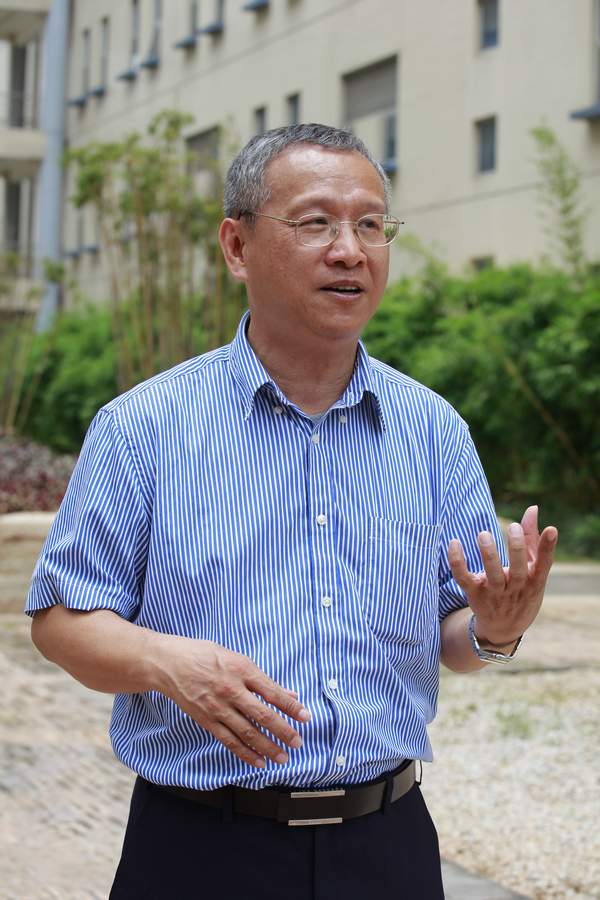
Prof Jerome Yen
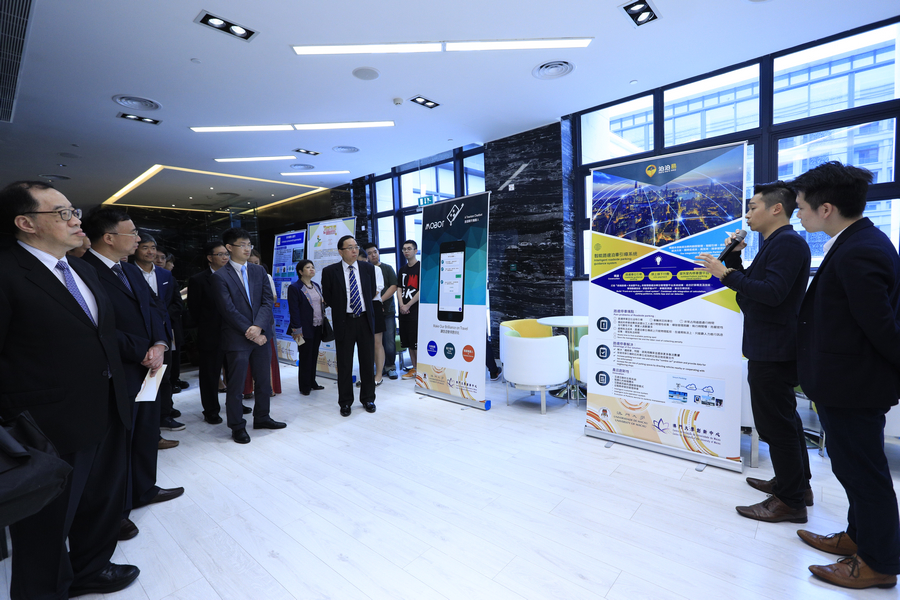
The first teams selected to join the Centre for Innovation for business incubation talk about their business plans in the admission ceremony
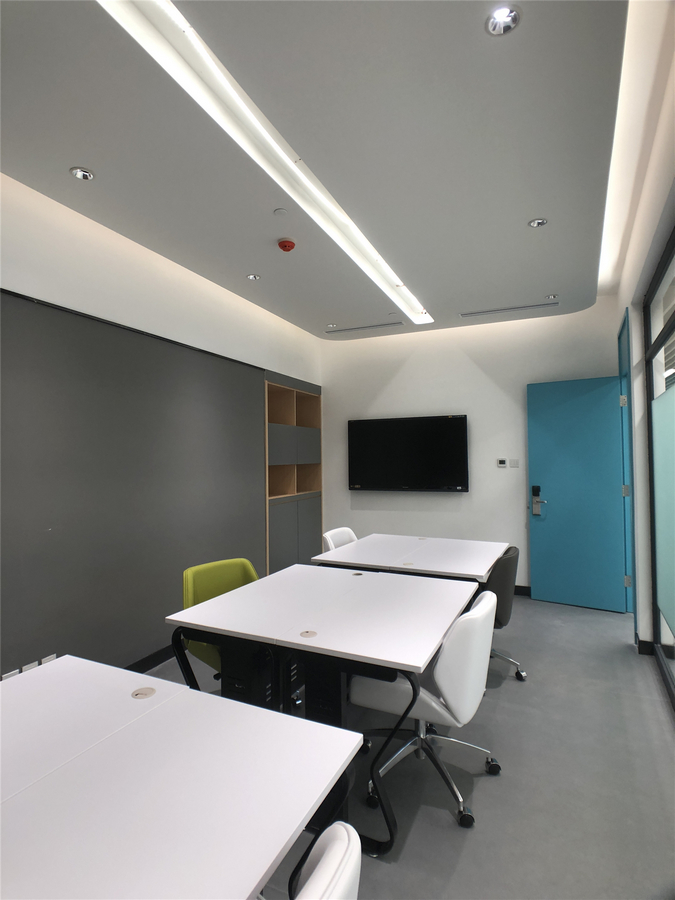
The conference room

independent offices
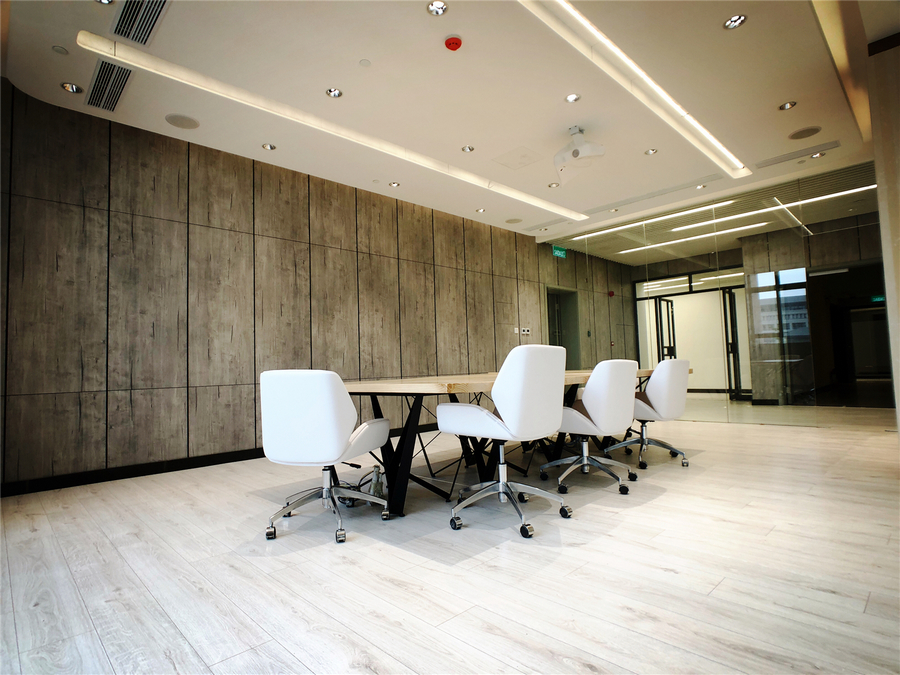
and coffee area in the Centre for Innovation
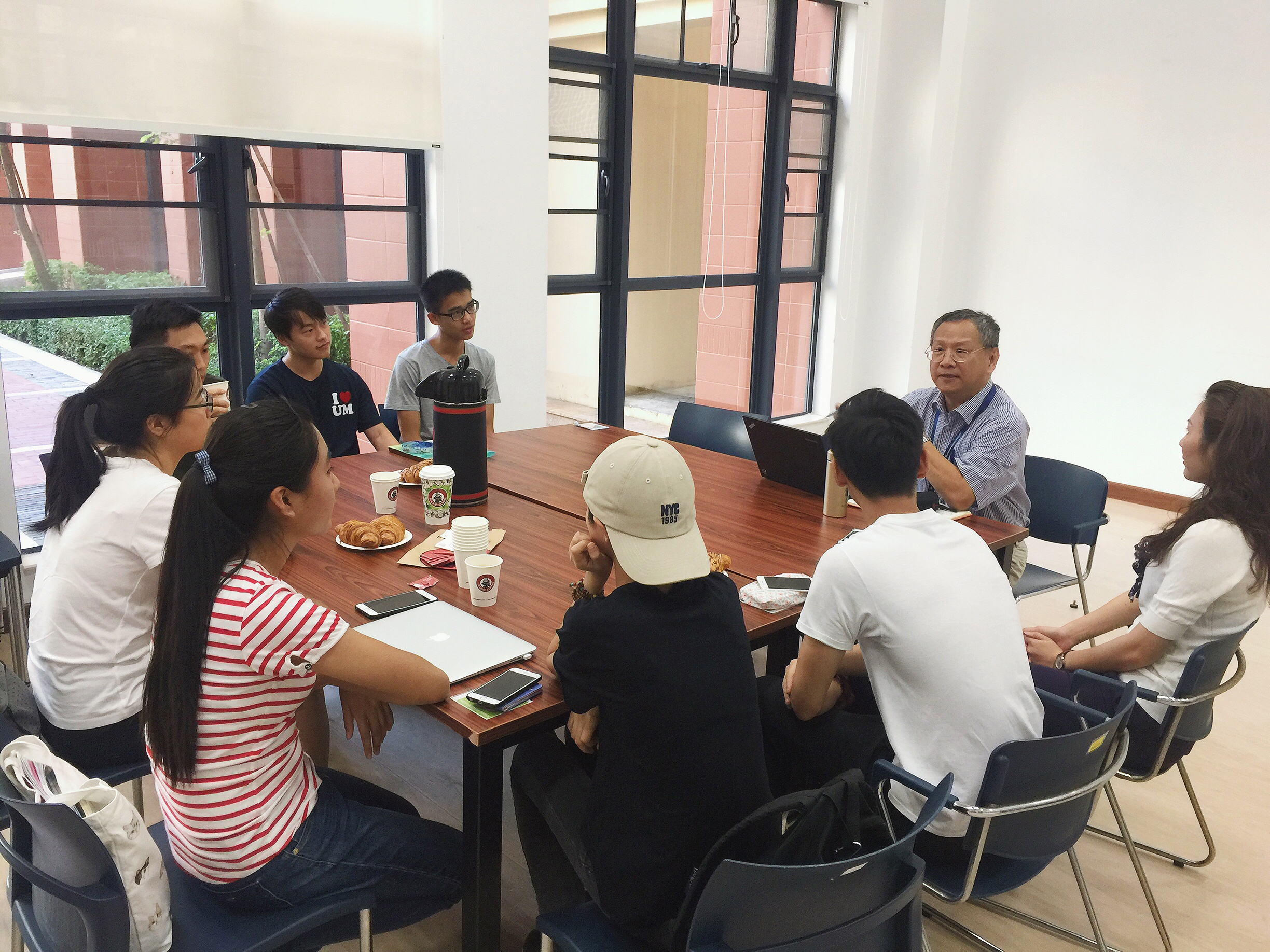
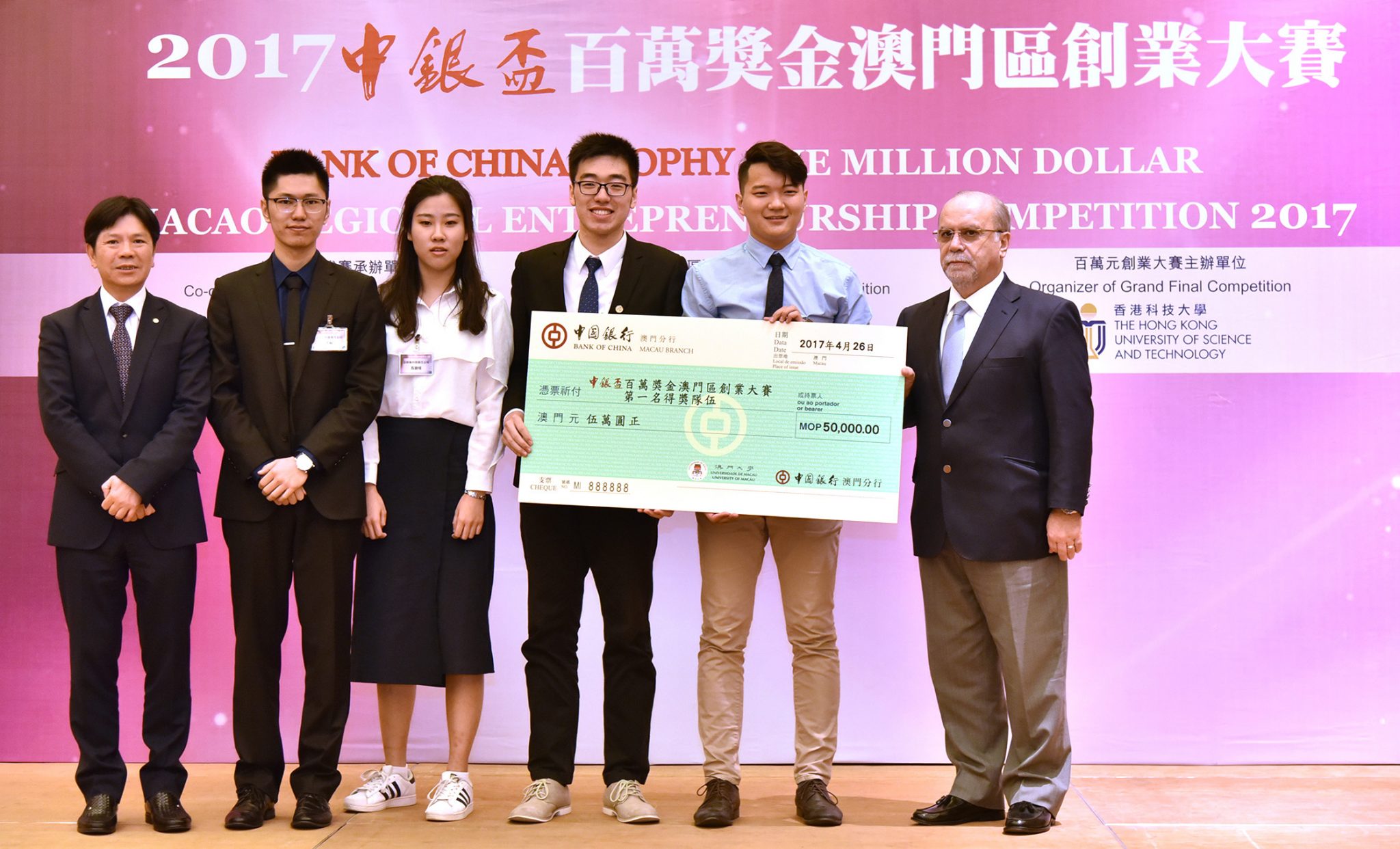
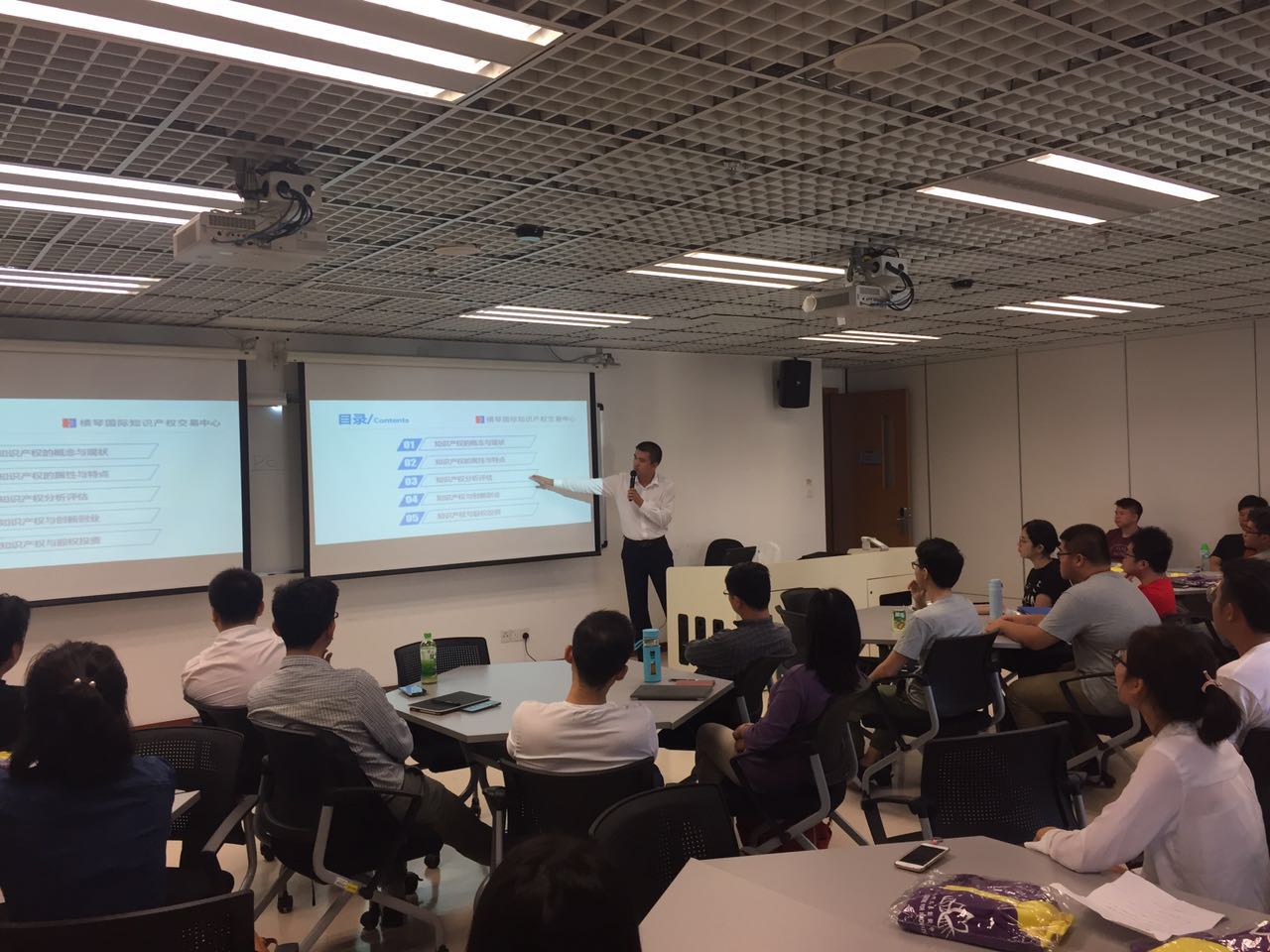
Prof Jerome Yen often holds meetings with students to discuss their entrepreneurial plans
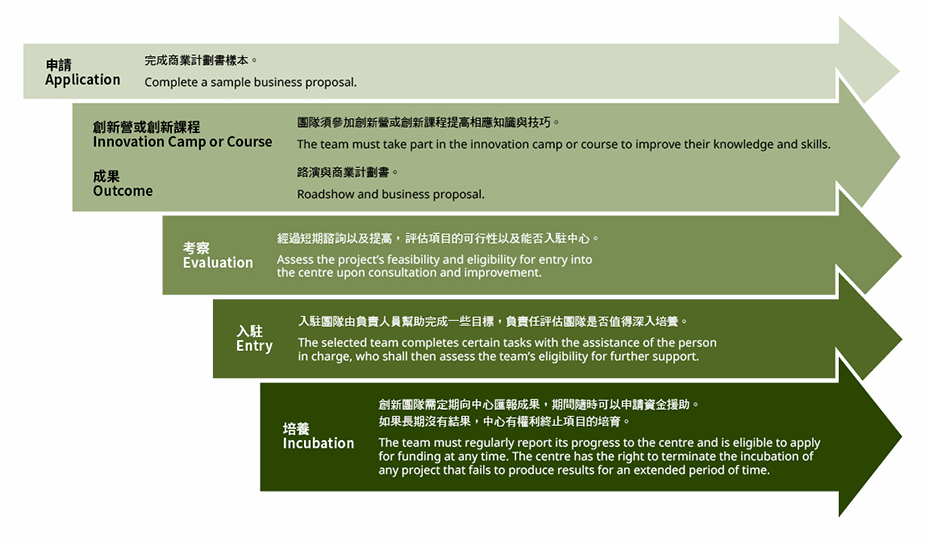
A student team wins the championship at the Bank of China Trophy One Million Dollar Macao Regional Entrepreneurship Competition
